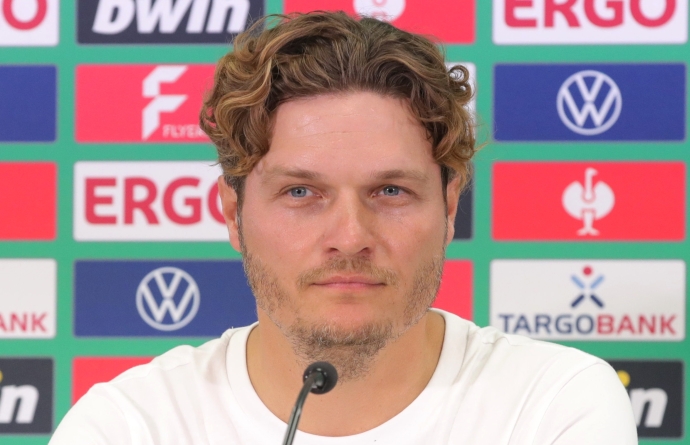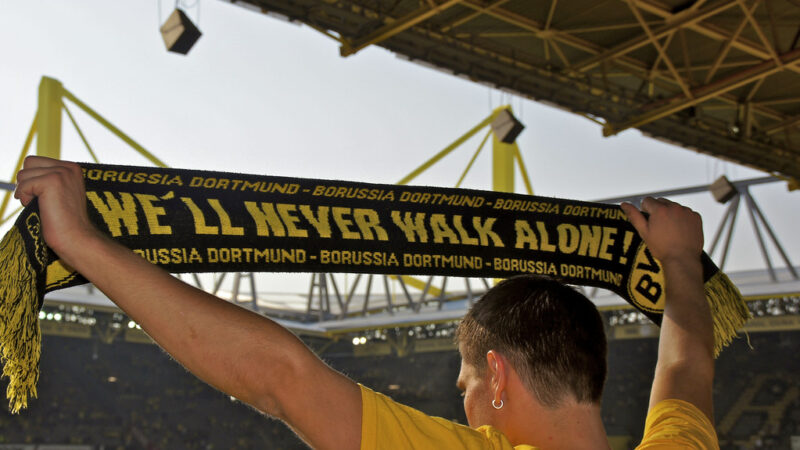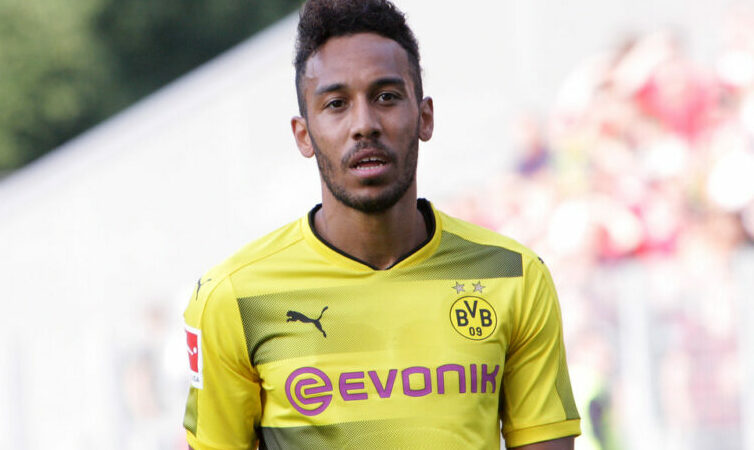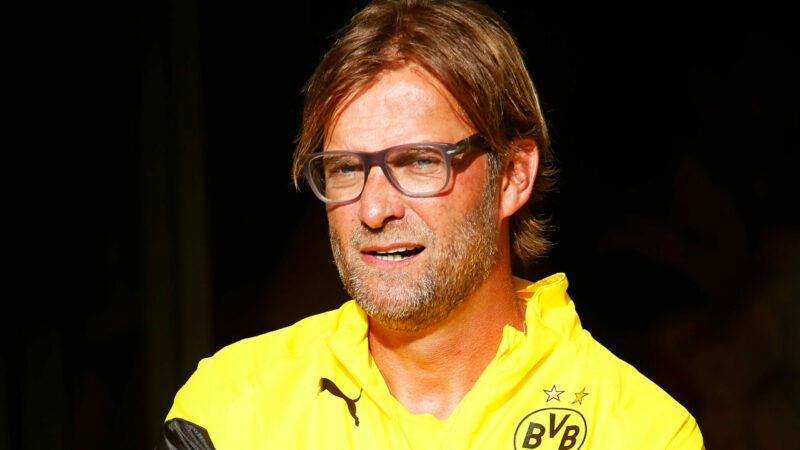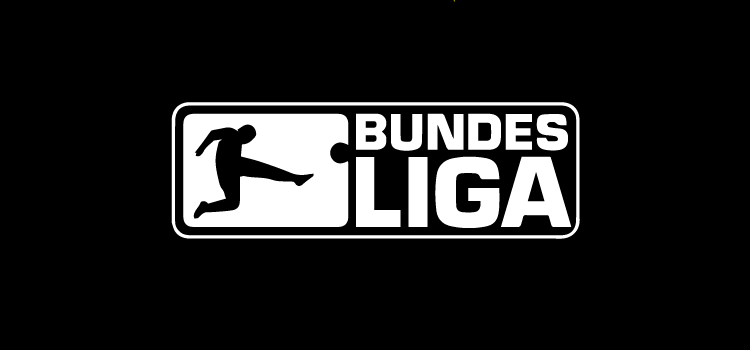What Gives?: Why Are Dortmund Owning the League and Bottling Europe?

Have you heard? Don’t look now, but Borussia Dortmund, under new manager Peter Bosz, have absolutely destroyed the Bundesliga so far this season. Not only are die Schwarzgelben in first place, but it took more than a month of the season for them to ship their allow their first goal of the season. Through their first five Bundesliga matches, Dortmund have netted an astonishing 19 times and still only allowed 1 goal. Bosz’s young but deep squad hit the ground running, playing with the confidence and cohesion of a team that has been together for years. Having fired one of the most sought-after young managers in Europe to end last season, the club hierarchy has proved once again to be among the best in the business with the way this team has responded to their year-long underachievement with a flying start.
In Europe, however, the story has been very different. In perhaps the most difficult group of all in the preliminary stages of the competition, Borussia Dortmund have dropped both of their Champions League matches, each by a score of 3-1. The contrast has been absolutely immense, with their irresistible league form quickly evaporating against their European foes. It is almost as if the team is developing two separate identities: one domestic, one continental. The race is now on to try and right the ship in the Champions League, or else Dortmund could face a very short run in the tournament.
One of the most shocking aspects to European competition for inexperienced clubs is the variety in style and tactics on display from a variety of opponents. Unlike league play, where tactical trends take hold and can influence most teams in some way, European competition brings together clubs from disparate leagues and styles, giving each match its own new set of challenges and strategy. However, there does tend to be one thing that unites all of the most successful sides in the Champions League: a proper, solid defensive midfield. Whether a single or double pivot is utilized, it is absolutely imperative in Champions League play to have an adequate shield for your back line. Without at least one of these types players in the side, teams will struggle when they come up against a good opponent.
Real Madrid and Barcelona are both perfect examples of the importance of the defensive midfield. Barcelona has been one of the best teams in the world every season for about a decade now, but they were not nearly as dominant in the Champions League until they settled their holding midfield role. Taking a big chance, Pep Guardiola (who was a prototypical Catalan single pivot himself) inserted young Sergio Busquets into the starting XI, and almost immediately, the whole team fell into place. Despite lacking the technique and physical tools of some of his fellow La Masia, Busquets instead had an instinctual understanding of the position and an allergy to losing the ball. Busquets would often just make the simple, correct pass to a teammate and leave the highlight reel tiki-taka flair to his more talented teammates. In short, it worked. Busquets turned out to be the missing piece and an absolute revelation. If the majority of football fans now know how vital the holding midfielder is to a team’s success, it is all down to this one Catalan player perfecting the position.
For Real Madrid, their current run of Champions League success wasn’t assured until the emergence of Casemiro in their holding midfield role. His strength and defensive abilities have freed up the rest of the midfielders and forwards to focus on the business of dominating the ball and attacking. Attacking sides tend to struggle when they are asked to defend other talented teams, so having a player with a simple role and directives shielding the backline is extremely useful.
Unfortunately, Dortmund do not have a player like Casemiro in the squad. They do have a deep-lying playmaker in Julian Weigl, but he possesses neither the engine nor the defensive ability to be a truly effective shield to the defence. If Dortmund are to find an effective solution in the defensive midfield, it could require putting a second player at its base, changing the formation to more of a 4-2-3-1. Wiegl could partner Nuri Sahin in a slightly more conservative partnership, with Mahmoud Dahoud also factoring in. Raphael Guerreiro and Sebastian Rode could offer reinforcement as well, if Bosz decides to alter the shape of his traditional Dutch 4-3-3.
Despite their last two managers, Thomas Tuchel and Peter Bosz placing an increased emphasis on keeping and dominating the ball, this Dortmund team is still one of the most devastating counter-attacking sides in the world. Even with the amount of squad turnover the last two years, that quick strike, counterpressing style that the team raised into an art form at its peak under Juergen Klopp is still very much present in this year’s iteration. Dortmund combine their stable of rapid attackers with a technical bunch of midfielders possessing the ability to get the ball forward with precision. As a whole, Peter Bosz’s men may constitute one of the most versatile and dangerous attacking forces in the world.
So far in this season’s Champions League Group Stages, Dortmund have had the misfortune of running into two teams capable of nullifying their strengths. Against Tottenham, a team that has weathered the storm in the Premier League the last two seasons to become one of Europe’s toughest and most cohesive sides, Dortmund were allowed time on the ball, looking extremely threatening in the process, but could not break down their opponents. With their experience defending intricate passing sides like Arsenal and Manchester City, Tottenham are used to pacey, talented teams trying to break them down, and were comfortable sitting back and defending for most of the match. Despite Dortmund actually looking strong enough to eviscerate most sides in Europe, Tottenham were resilient and outlasted the onslaught, scoring 3 times on just about as few chances. Peter Bosz will have been frustrated by the fact his team were able to accomplish what they wanted to with possession, but were still unable to come out on top.
Against Real Madrid, it was a battle of similar styles with the Spanish powerhouse eventually coming out on top. Despite winning the possession battle and equaling their opponent’s shot tally, Dortmund were more wasteful in front of goal, only seeing 1 in 4 shots find the target. The match was a mirrored tactics match, with both Bosz and Madrid manager favouring a 4-3-3 and attacking dominance. The match was simply a case of the best club team in the world over the last two seasons playing up to their own standard. As exciting as Peter Bosz’s young Dortmund side is, they were simply no match on the night for Zinedine Zidane’s men.
So is there actually a problem with this team in Europe? Well yes, but honestly, their main issue is the strength of their opponents in the Group Stages of the Champions League. If the German club had been drawn into the comparatively lightweight Group E that former manager Juergen Klopp’s Liverpool team was, we could very easily be discussing today how long this Dortmund team could go this season before losing their first match. If Dortmund want to make it out of the group stages of the competition this season, they may need to look at tactical adjustments in the base of the midfield for the sake of solidity, but nothing about their performances has suggested a team that is unprepared and ill-equipped for the continental stage. They could have easily beaten Tottenham on a more clinical night and Real Madrid is…well…the best, frankly. If Dortmund are unable to make it out of their group this season, it will likely do little to dampen the excitement surrounding this ridiculously talented, young and, hopefully, improving squad for the future.

